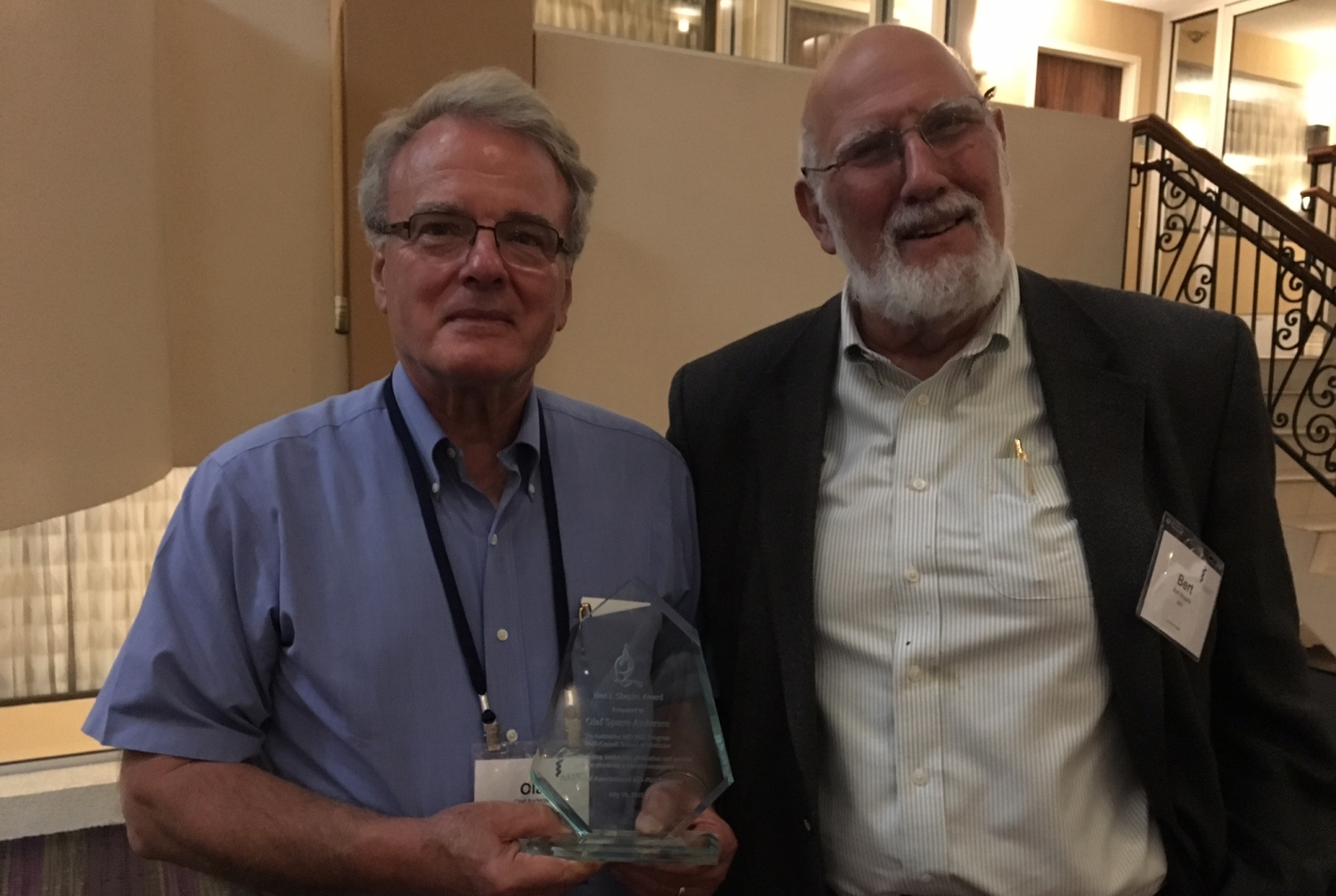
Dr. Olaf Andersen was honored in July with the Bert I. Shapiro Award from the National Association of MD-PhD Programs for his work as director of the Tri-Institutional MD-PhD Program, a collaborative effort between Weill Cornell Medicine, Memorial Sloan Kettering Cancer Center and The Rockefeller University, and his accomplishments as president of the association.
Dr. Andersen, a professor of physiology and biophysics at Weill Cornell Medicine, received the award July 18 at the annual meeting of the MD-PhD Association, which aims to advance the education, training and career development of physician-scientists, with an emphasis on training in MD-PhD programs. The Shapiro Award, the association’s top honor, is named in honor of Dr. Bert I. Shapiro, the longtime National Institutes of Health Medical Scientist Training Program director who encouraged collaboration among MD-PhD programs and advocated for their support. The award recognizes an individual or organization that has made outstanding contributions to physician-scientist training on a national level.
The Tri-Institutional MD-PhD Program was founded in 1991, when Weill Cornell Medicine’s joint MD-PhD programs with Rockefeller and with Memorial Sloan Kettering merged. The newly established program provided outstanding students with a rigorous course of study and unfettered access to research mentors in leading laboratories at the three institutions.
When Dr. Andersen was named director in 1996, he undertook a major reorganization of the program in order to fully exploit its unique opportunities and discovered that the program’s distinctive strengths were not widely recognized outside the Tri-Institutional campus, he said. Embarking on an effort to boost the program’s profile nationally, Dr. Andersen became involved in the MD-PhD Association’s leadership, where as president from 2003-05 he negotiated the establishment of an MD-PhD section within the Association of American Medical Colleges (AAMC), a move which led to a unified MD-PhD application, admission traffic rules, outcomes research and greater national recognition of the physician-scientist career path.
The MD-PhD Association, and the AAMC Section, served as the venue where MD-PhD program directors and administrators could freely discuss both best practices and what was less effective. Dr. Andersen applied this knowledge as he, together with the program’s administrative director, Dr. Ruth Gotian, and many others, worked to develop the Tri-Institutional MD-PhD Program’s structure, with the goal of providing an outstanding training environment that promoted communication and collaboration among the three institutions.
“We have taken these three institutions, each with their distinct culture and history, and developed a coherent training program that makes the whole far greater than the sum of the parts,” Dr. Andersen said. “I consider this to be essential for the development of the culture of excellence that motivates our students to excel at all levels. I am immensely proud of the program’s current students and its alumni.”
The Tri-Institutional MD-PhD Program has graduated 378 physician-scientists, with more than 85 percent pursuing careers in academia, at research institutes, and in biotech and pharma. On average, 18 trainees are accepted into the program each year; they are funded in part by the National Institutes of Health’s Medical Scientist Training Program. Students are encouraged to question everything as they work independently, with support from faculty members and administration, to develop the skills necessary to become leaders in biomedical research.
“What we have done over the years is to use the data we have to see how we function, and improve the elements that seem to work less well. The goal is to develop a program where students know that we have very high expectations of them,” Dr. Andersen said. “Just as important, we also provide them with the support they need in order to live up to their, and our, expectations.”